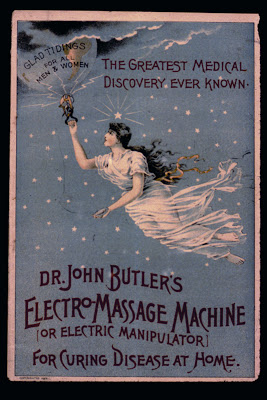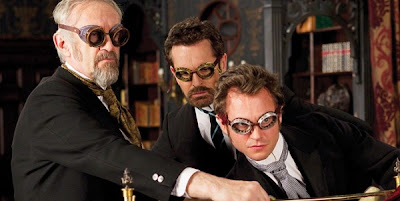Like a lot of women, I’m impatient with the “great man” films that invade theaters every year just in time for Oscar consideration. The main character is always a man whose name we all know, played by an actor who really wants an Academy Award. We see his earliest struggles then later, his triumphs. The addition of some failures never succeeds in making the film more interesting, just longer.
Do great women exist? The film industry still hasn’t decided. We had Frida a dozen years ago and that bio-pic about Margaret Thatcher (like Frida, directed by a woman) from a few years back–which won Meryl Streep an Oscar, but tepid reviews along with a completely irredeemable main character kept me from seeing it. Usually the women in the “great man” films are great only by osmosis, because they married or otherwise provide emotional–and other–support to great men. The actresses who play these roles win Oscars too; they make the “supporting” category a literal one. The Theory of Everything, the new bio-pic about astrophysicist (and best-selling author) Stephen Hawking, seemed like it might be different since it’s based on the book written by the great man’s first wife, Jane.
But the movie begins by focusing on him (Eddie Redmayne) not her, as he rides a bike, attends classes as a Ph.D. student in the early 1960s at Cambridge and acts as a coxswain (complete with megaphone) for the crew rowing on the river. Hawking meets Jane (Felicity Jones) at a student mixer and they become a couple. Hawking’s physical awkwardness could pass for that of any geeky man who considers his body merely a container for his brain, but we know what’s coming before the characters do when we see scenes in which Hawking trips and falls in a train station or his hand folds in on itself as he writes equations on a blackboard. When he has a fall in the yard he receives his diagnosis, ALS (also known as Lou Gehrig’s Disease), along with the news “Life expectancy is two years.”
At first he avoids Jane and holes up in his room, but after she finds out from his friends about his illness, in a scene we’ve all watched in countless other films, she marches into his room and declares, “I want us to be together for as long as we’ve got.” Stephen resumes his studies and for his thesis topic chooses “time.” He and Jane get married and start to have children soon after.
What follows is a portrait of a marriage that combines all the elements of pre-second-wave feminism at once: Jane has to set aside her studies not just to care for her very young children, to make all the meals and clean the house, but also to care for her husband, whose mobility is rapidly deteriorating, even though he’s still a relatively young adult. At the point where he can walk only with the assistance of two canes and can maneuver the stairs in his house only by lying flat on his back and grasping with his few remaining functional fingers the railing to pull himself up or down, we see Stephen hand in a typed dissertation with a barely legible shaky signature; I couldn’t help wondering if the person who typed it was Jane, since he seems unlikely to have been able to do so himself–and so many wives in that era were also their husbands’ de facto secretaries. We’re also seeing an era in which care for disabled family members was often left to a wife or mother (as opposed to paid staff, unless the family was very wealthy), and no one, not Hawking’s family nor Jane’s, ever thinks of taking over his care for even a few hours at a time to give Jane some respite. On the drive back from a dinner at his family’s hillside cottage in the country, a teary Jane tells Hawking she needs help, but he cuts off any further discussion.

Later Jane’s mother can see how stressed she is and (instead of offering to help) suggests she join a church choir (Jane is a regular churchgoer, a contrast to her outspoken, atheist husband). She then meets the handsome choirmaster, Jonathan (Charlie Cox) who becomes a family friend and also helps with Stephen’s care. Stephen seems to see the spark between his wife and Jonathan from the beginning and lets her know in an indirect way that she is free to pursue the relationship. Here the film is at its most interesting: too many “great man” films seem to sum up the wife or girlfriend character struggle of living with the great man as “she was a saint” without considering that she might have needs of her own. Jane’s situation also parallels many others of the 50s and 60s when women got married in their early 20s and found in their 30s and 40s their marriages did not fulfill their own expectations and ambitions. Jane remains devoted to Stephen but is at her happiest when she spends time with Jonathan. The closeness of their relationship invites the scrutiny of others at the christening of her third child, when her mother-in-law follows her into the kitchen and declares the family has a “right to know” whether the child is Jonathan’s. Jane replies that the child’s father could not be anyone but Stephen.
When Stephen has the health crisis that robs him of the ability to talk without assistance, Jonathan steps back and nurses come into the home to help Stephen, along with a man who designs a device through which Stephen can talk again, by slowly “typing” (actually clicking a monitor to choose letters and phrases) and having an electronic voice read the words. Stephen becomes very close to one nurse in particular, Elaine (Maxine Peake), who even helps him to look through the copies of Penthouse that come to his office. He eventually leaves Jane for her. An end title tells us that Jane eventually got her Ph.D., married Jonathan, and that she and Stephen are still friends.

What the film leaves out are the most interesting parts of the story–not just Hawking’s scientific work (we get explanations that are so oversimplified they don’t make much sense), but also that the nurse Stephen lived with (and eventually married and divorced) was the wife of the man who created his speaking device–and that she was also investigated after other caregivers alleged she physically abused Stephen (during their relationship he had unexplained bruises, broken bones and burns). When Jane did publicity for a previous movie based on her and Stephen’s relationship, she said she couldn’t comment on Elaine (who was still married to Stephen then) for legal reasons. She did admit during interviews that she was friends with Stephen mainly for the sake of the children. And she and Stephen weren’t a couple when he was diagnosed, their romance blossomed afterward, which Jane described as being in keeping with the great optimism of the early 1960s that ran parallel with the belief that nuclear war between the super powers could, at any moment, wipe out the world.
Redmayne does a credible job as Hawking (whose character in the film is much more sympathetic than Jane and news sources have portrayed him; this Hawking never runs over anyone’s toes “accidentally” with his electric wheelchair), especially in the later scenes where we see a certain impishness in his face (very like the real-life Hawking’s), while most of his features remain immobile. Jones as Jane does a serviceable job too, but I wish she had been allowed to look and dress less like Jean Shrimpton (the British supermodel popular in the era when the film begins). At least Redmayne (who is also more conventionally pretty than the person he plays) gets to mess up his hair and wear unflattering glasses; Jones, for much of the film, until she starts wearing a crappy short wig and half-assed “aging” makeup, looks like she could have stepped out of a stodgy, British clothing catalogue, even when Jane has three kids and a disabled husband to take care of, and, as Jane points out in her book, and is briefly referenced in the film, very little money. The filmmakers (screenwriter Anthony McCarten and director James Marsh) didn’t seem to think any of these details were worth including. The Theory of Everything is a good, if very conventional, film, but the real story it’s based on could have been made into a great one.
[youtube_sc url=”https://www.youtube.com/watch?v=x8QYUgO-tZo”]
___________________________________
Ren Jender is a queer writer-performer/producer putting a film together. Her writing. besides appearing every week on Bitch Flicks, has also been published in The Toast, RH Reality Check, xoJane and the Feminist Wire. You can follow her on Twitter @renjender






